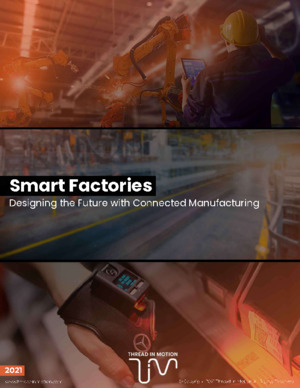The processing of big data and the contact of objects with each other is known as the internet of things. With the help of the internet of things, smart homes, smart cities, and smart environments can be designed, not smart factories. The key role in this technology is the sensors. Sensors that measure measure the physiological properties of objects and convert them into numerical values enable these data to be used by other devices via the web. Reduction in labor costs, low energy consumption, reduction in environmental pollution, and prevention of work accidents can be counted as the main advantages of automation in production. However, on the other side of the coin is the unemployment that will be created by the transformation in the workforce.
Comments on the Internet of Things (IoT) are often about how they will affect our daily lives. From drone delivery of a pizza to turning on your home heating from your phone, smart and connected devices have become commonplace in recent years.


